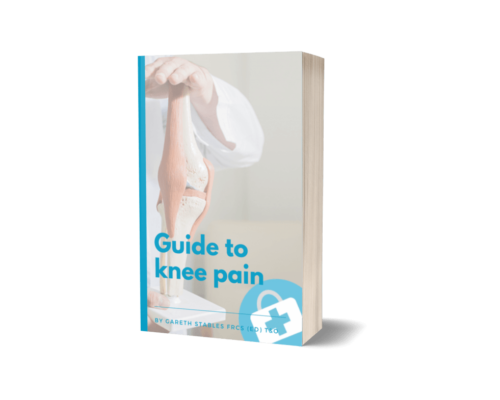Why is my knee pain worse at night?
Problems such as knee arthritis can cause pain and stiffness and stop you doing the everyday things you enjoy. For many their knee pain can also stop them getting a good night’s sleep.
In a major study insomnia was found to be significantly more common among people with arthritis, affecting 10.2 million people and 23 percent of people with arthritis. A recent study from the U.S. suggests 34% of people with osteoarthritis report pain disturbed their sleep at least three times a week.
Why does my pain seem to get worse at night?
The answer is probably due to a few different reasons. The levels of your natural anti-inflammatory hormone, cortisol, are naturally lower at night. Staying still in the same position will also cause your knee joints to stiffen up. Another reason could be related to how your brain perceives pain and this may change in the small hours.
Your perception of pain is more pronounced at night or to put it another way your pain thresholds are lower at night. Your other senses are distracting you during the day when there is more noise and more going on around you, these distractions are no longer there at night.
In other words, you’ll notice your pain more at night, so it bothers you more.
The vicious cycle – less sleep = more pain
Poor sleep leads to daytime fatigue which means people experience more pain. When you are tired your brain is less able to shut off the pain signals. When you are tired you’ll not feel like exercising which we know is good for helping you manage your arthritis symptoms.
Tiredness is also linked to depression in arthritis patients which in turn is linked to worsening pain.
What can I do to help?
- Good sleep hygiene - Do the things that can help everyone — with or without arthritis — get a better night’s sleep. It is important to go to bed each night at the same time and wake up at the same time each morning, no electronics or screen time prior to bed, and no eating or any other activities unrelated to sleep before bed.
- Exercise - Moderate physical activity is an important part of your arthritis treatment plan, and it’s also associated with better sleep for arthritis patients. But if you’re someone who struggles with sleep, make sure to exercise earlier in the day, as opposed to after work or dinner, to avoid too much stimulation before bed.
- Meditation or mindfulness - Any mental technique that can help you relax before bed is worth it. Try visualisations such as picturing yourself on a Caribbean Island, lying in a downy soft bed with the doors open to the sounds of waves lapping on the beach outside your window, or even simply counting sheep!
- Make sure your bed is comfy - Check with your doctor or physical therapist, but in general, avoid a too-firm sleeping surface. A soft mattress is very important. Heavy blankets may put too much pressure on your joints, weighted blankets can help some people settle down, and they’re becoming more widely used among people with chronic pain, so see what works for you. You can also experiment with pillows between or behind your joints to see what feels good. There are even some knee support pillows designed to keep your knees apart that may help.
- Discuss your medications with your doctor – Talk to your doctor about the degree of your symptoms and how they are affecting your sleep. There may be some medication changes you could make that could help with your pain at night.

Will I need surgery?
Good question!! The most important person in the clinic room who decides when you should have a knee surgery is you. Knee surgery is predominantly a quality-of-life procedure. Only you can decide if your quality-of-life is affected enough that you are willing to go ahead with surgery.
There are many treatments that we can provide that can delay or even avoid the need for surgery, but if you do need a new knee then be re-assured that it is the best way to treat end stage arthritis. It really does transform people’s lives. With advances in recent years knee replacements are safer, more reliable, last longer and have a very low complication rate.
If you’d like to learn more about knee replacement surgery you can download my free guide to knee replacement surgery here.
Reduce the load on your knee. What if you have injured your knee, ankle or leg but don't want to lose mobility? Well, you can use knee scooters. It is a convenient way of transporting during knee injuries. You can choose an adjustment in which your foot will not experience discomfort. Reducing the load on your knee will cause less or no pain at bedtime.


